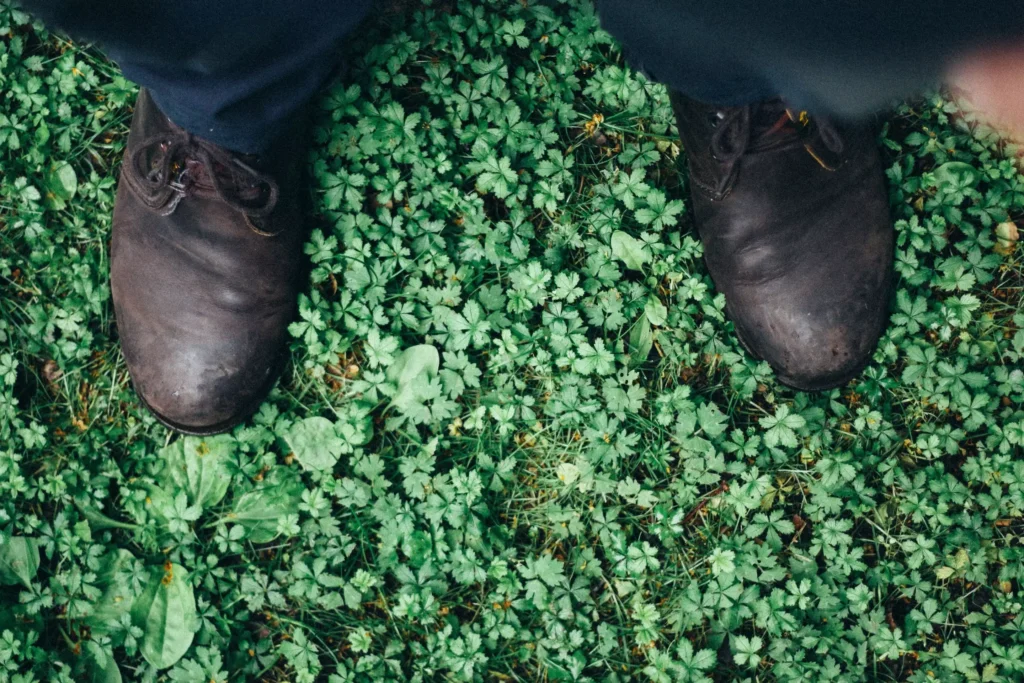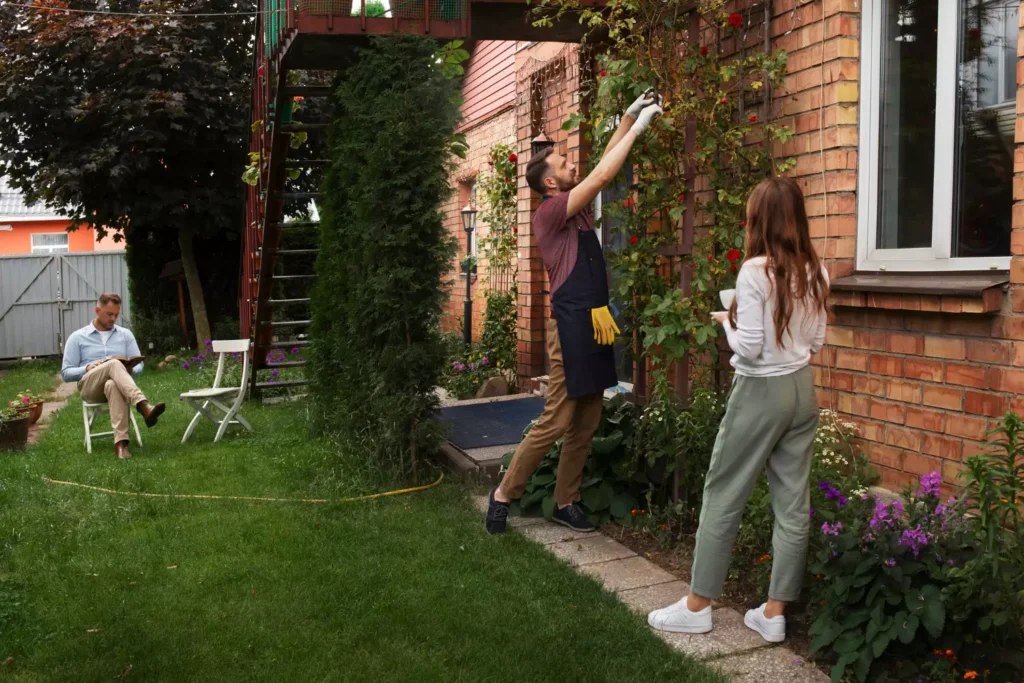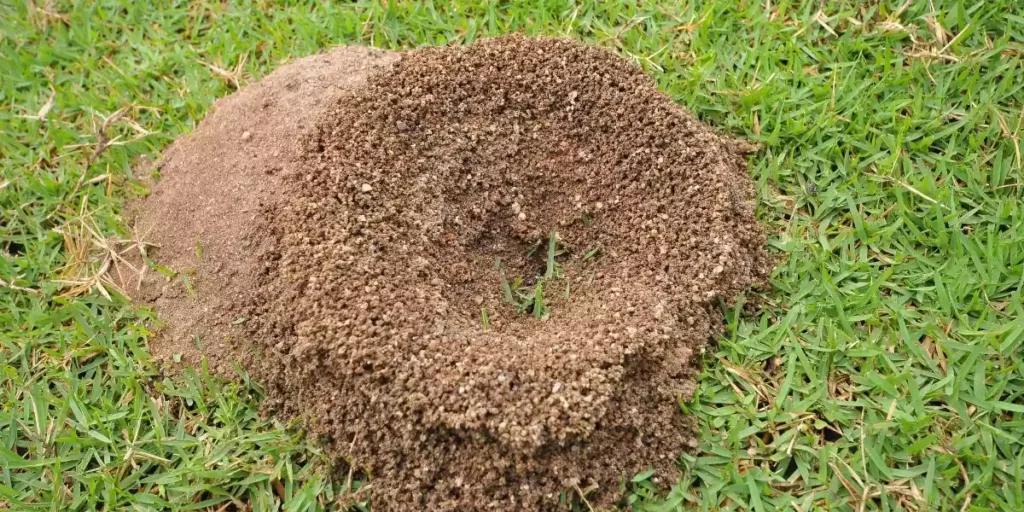Oh, the joys of vermicomposting! I can’t tell you how much I love having a worm bin in my backyard. It’s a great way to dispose of kitchen scraps, reduce my environmental footprint, and produce nutrient-rich compost for my garden.
But there’s one pesky problem that can make the vermicomposting experience less than ideal – ants. Yes, those tiny creatures can wreak havoc on a worm bin, and trust me, I’ve learned that the hard way.
It’s ironic, really. I create a cozy home for my worms, and then the ants come marching in, uninvited, to steal their food. But here’s the thing – ants can be a real threat to the success of a worm bin. They can consume the sweet food scraps that the worms need to survive, and their presence can disrupt the delicate balance of the composting process.
So, what can you do to keep ants at bay and ensure that your vermicomposting efforts are fruitful? Let’s explore the relationship between ants and worms in composting and discover some natural ways to repel ants from a worm bin.
Will ants eat worms?
While most ants are not interested in eating worms, there are some predatory ants that may harm them. Army ants, carpenter ants, and fire ants are three types of ants that are known for eating worms. Army ants are cannibalistic and specialize in eating other ants, while carpenter ants feed on other insects and ants species and attack different types of worms. Fire ants usually feed on plants but may eat insects and worms.
It’s important to note that most ants are attracted to the food that worms eat and not the worms themselves. So, if you have sweet food scraps in your worm bin, you may find ants crawling around. However, ants won’t harm your worms.
Still, it’s best to avoid putting sweet foods, baked goods, meat, cheese, and dairy in your worm bin. Instead, stick to vegetable scraps that are less attractive to ants and delicious for your worms.
If you’re concerned about ants in your worm bin, there are natural ways to deter them, such as covering food scraps with sugar cane mulch or garden soil, placing the worm bin out of the way, and reducing the amount of food ants have access to.
Which Ants Will Feast On Worms?
So, I’ve been doing some research on ants and worms, and I’ve found out that there are three types of predatory ants that may feast on worms: army ants, fire ants, and carpenter ants.
Army ants are cannibalistic and specialize in eating other ants. Carpenter ants feed on other insects, ants species, and attack different types of worms. Fire ants usually feed on plants, but they may also eat insects and worms.
It’s important to keep these ants away from worm pits to protect the worms.
Army Ants
If you have army ants in your compost pit, watch out – they’re like a swarm of hungry sharks in the ocean!
These predatory ants are known for their aggressive behavior and cannibalistic tendencies, making them a potential threat to worms and other insects in the compost. Army ants specialize in eating other ants, but they won’t hesitate to attack and consume other prey, including worms.
To prevent army ants from invading your worm bin, it’s important to take preventive measures. Creating an island around the worm pit surrounded by water can prevent ants from entering, as most ants aren’t good swimmers. Applying a sticky coating to the sidewalls of the bin can also prevent ants from entering.
Additionally, avoiding overfeeding the worms and keeping the bin moist can discourage ants from entering and creating a trail to the food source. By being proactive and taking preventative measures, you can keep your worm bin safe from the threat of army ants.
Fire Ants
In the current section on fire ants, it’s important to note their usual diet of plants and occasional consumption of insects and worms. While they may not be as predatory as army or carpenter ants, fire ants can still pose a threat to the vermicomposting process. Their presence can disrupt the balance of the worm bin and lead to an increase in acidity, which can harm the worms and slow down decomposition.
To deter fire ants from the worm bin, it’s recommended to avoid putting sweet foods, meat, cheese, and dairy in the bin. Instead, stick to vegetable scraps and cover them with a layer of sugar cane mulch or garden soil.
Keeping the bin moist and stirring the food scraps gently through the worm castings can also help deter ants. By being mindful of what goes into the worm bin and taking steps to prevent ant infestations, we can ensure the success of our vermicomposting efforts.
Carpenter Ants
The presence of carpenter ants can harm the balance of your worm composting system and disrupt the decomposition process. These ants are skilled hunters and will attack different types of worms, including the ones in your worm bin. Here are some things to keep in mind when dealing with carpenter ants:
- Carpenter ants feed on other insects and ant species, and can attack worms for food.
- They’re attracted to sweet food scraps in the worm bin, which can disrupt the balance of the composting system.
- Crushed limestone can balance pH levels and deter ants, while oil or kerosene and soapy water can also be effective.
- It’s important to avoid using insecticides that could harm the worms.
To keep carpenter ants out of your worm bin, it’s crucial to keep it clean and free of excess food scraps. By taking the necessary precautions, you can create a healthy and balanced environment for your worms to thrive in.
Should You Get Rid Of Ants In Your Worm Bin?
You might be hesitant to take action, but getting rid of unwanted guests in your worm habitat will ensure a healthy and thriving environment for your hardworking compost helpers.
Ants in your worm bin are not necessarily a threat to your worms, but they can consume the sweet food scraps that are crucial to your worm’s diet. In addition, ants can create an unpleasant environment for your worms and make it more difficult for you to manage your compost.
To get rid of ants in your worm bin, there are natural ways to deter them. One method is to cover the food scraps with sugar cane mulch or garden soil, which will make it less accessible to ants. You can also place the worm bin out of the way or reduce the amount of food ants have access to.
By taking these simple steps, you can ensure that your worm bin is a healthy environment for your worms and keep unwanted guests at bay.
What foods attract ants to a worm bin?
Knowing which foods are attractive to ants in a worm bin is important for maintaining a healthy and balanced environment for composting. Ants are commonly attracted to sweet and sugary foods, so it’s best to avoid putting these types of scraps in the worm bin.
Here are some foods that may attract ants to a worm bin:
- Sweet foods such as fruit scraps, baked goods, and sugary drinks.
- Meat, cheese, and dairy products.
- Oily or greasy foods.
- Foods that are too acidic, such as citrus fruits and tomatoes.
Instead, stick to vegetable scraps and other non-sweet foods that are more appealing to worms and less likely to attract ants. Additionally, it’s important to cover the food scraps with a layer of bedding and keep the bin moist to deter ants from finding their way in.
If ants do find their way into the worm bin, there are natural ways to get rid of them without harming the worms. For example, covering the food scraps with sugar cane mulch or garden soil can deter ants, as can reducing the amount of food they have access to and covering the bin.
Keeping the bin moist and stirring food scraps gently through the worm castings can also help deter ants. By being mindful of the foods you put in the worm bin and taking steps to prevent ants from entering, you can maintain a healthy and balanced composting environment for both your worms and your plants.
Superb Method Of Getting Rid Ants From Your Worm Bin
Hey there! I’ve discovered a superb method for getting rid of ants from your worm bin.
First, gently stir the bedding and worm castings to cover up any food scraps that may be attracting the ants. Then, cover the food scraps with soil or mulch to deter the ants.
Stop feeding the worms for one week to reduce the amount of food available to the ants. Keep the worm bin covered and raise the moisture level to deter the ants.
Putting on the lid and using Diatomaceous Earth can also be effective, as well as creating an island surrounded by water or applying a sticky coating to the base sides.
Gently stir the worm bin
As I gently stir through the rich, dark castings in my worm farm, I can’t help but feel a sense of satisfaction knowing that my kitchen scraps are being transformed into nutrient-rich soil for my garden.
However, as I do so, I also notice that this simple act can be an effective way to deter ants from my worm bin. By gently stirring the bedding and castings, you can disrupt the ants’ trail and discourage them from finding their way to your worm bin. This also helps to evenly distribute the food scraps, preventing any sweet spots that may attract ants.
And the best part? Your worms will appreciate the extra oxygen and movement, which can improve their health and productivity. So next time you spot ants in your worm bin, give it a gentle stir and watch them scatter.
Cover the foods scraps with soil or mulch
Now that we’ve discussed the importance of gently stirring the bedding and castings in the worm bin, let’s talk about another way to deter ants from invading your vermicompost.
One effective method is to cover your food scraps with soil or mulch. By covering your scraps with a layer of soil or mulch, you create a barrier that ants have a harder time getting through. It also helps keep the moisture in the bin, which is important for the health of your worms.
In addition, using soil or mulch can help regulate the temperature in the bin, keeping it cooler in the summer and warmer in the winter. This method is especially useful if you live in a warmer climate where ants are more prevalent.
Remember to use garden soil or mulch that’s free from pesticides and chemicals to avoid harming your worms.
Stop feeding the worms for one week
If you’re struggling with an invasion of scavenging insects in your composting setup, take a break from feeding those wriggly little guys for a week and watch as the onslaught of pests subsides. This method has worked wonders for me in the past, as it allows the worms to consume the existing scraps and bedding, leaving nothing for the ants to feed on.
During this time, it’s important to keep the bin moist and maintain a slightly acidic pH level to ensure the worms are healthy and happy. While this may seem like a drastic measure, it’s a simple and effective way to get rid of ants in your worm bin without resorting to harmful pesticides or chemicals.
Plus, it gives the worms a chance to catch up on eating all the scraps you’ve been piling on top of them. After a week, you can resume feeding the worms as normal, but be sure to monitor the amount of food you’re adding and avoid sweet or sugary foods that may attract ants again.
Keep the worm bin covered and raise the moisture
You don’t want any uninvited guests crashing your worm party, so keep that bin covered and make it a moist and cozy hideaway for your little composting buddies. Covering the bin with a worm blanket or garden soil can help form a barrier to ants.
Additionally, raising the moisture level in the bin can deter ants from entering. To achieve this, make sure to water the bin regularly and keep it moist. You can also add some damp newspaper or cardboard to the bedding to help retain moisture.
By creating a comfortable and moist environment for your worms, you can ensure that they thrive and continue to produce high-quality vermicompost for your gardening needs.
Put on the lid
Put on the lid and enjoy a worry-free worm composting experience without any unwanted visitors. The lid acts as a barrier to keep ants out and maintain a stable moisture level in the worm bin. When the lid is on, it also creates a dark and humid environment that worms love.
This is important because worms need a moist environment to breathe through their skin. If the bin dries out, the worms may die. Therefore, it’s crucial to keep the lid on to prevent the moisture from evaporating too quickly.
In addition to keeping out ants, the lid also helps to control the temperature and prevent odors from escaping. Worm composting can produce a strong smell, especially if the bin is overfed or not maintained correctly. With the lid on, the smell is contained, and the composting process can continue undisturbed.
So, put on the lid and let the worms do their job in peace.
Use Diatomaceous Earth
Using diatomaceous earth is an effective way to repel ants from your worm composting setup, ensuring a safe and hassle-free experience.
Diatomaceous earth is a natural and non-toxic repellent that works by drying out the exoskeleton of insects, causing them to die. It is a powder made from the fossilized remains of tiny aquatic organisms called diatoms and can be easily sprinkled around the perimeter of your worm bin or directly on ant trails to create a barrier.
To apply diatomaceous earth, simply sprinkle a thin layer around the edges of your worm bin or on ant trails, paying extra attention to areas where ants may be entering. Be careful not to overapply, as diatomaceous earth can be harmful to worms if they come into direct contact with it.
It is important to note that diatomaceous earth is only effective when dry, so it may need to be reapplied after rain or watering. By using diatomaceous earth, you can repel ants from your worm composting setup and ensure that your worms are safe and healthy.
Create an Island Surrounded by Water
Creating an island surrounded by water is like building a fortress for your beloved worms, protecting them from the persistent invasion of pesky ants.
This method is simple yet effective in keeping ants away from your worm bin. All you need is a waterproof basin or container that’s larger than your worm farm, 2 to 4 bricks, and a few liters/gallons of water.
To set up the island, place the waterproof basin/container in the garden where you want to keep your worm pit. Then, place the bricks in the basin/container, making sure that your worm pit can stand firmly on them.
Fill the basin/container with at least two inches/5 cm of water and place the worm pit on the bricks. Ensure that neither the bricks nor the worm pit touch any side of the basin/container.
This way, worms cannot access the worm farm, and ants cannot swim or cross the water.
Creating an island surrounded by water is a natural and effective way to keep ants away from your compost pit and protect your worms.
Apply Sticky Coating to the Base Sides
Applying a sticky coating to the sidewalls of the container is a simple yet effective way to deter ants from entering your worm farm. You can use double-sided tape or a sticky barrier that ants can’t climb over. The sticky surface will make it difficult for ants to gain access to the worm bin, keeping them from stealing food scraps and disturbing the worms.
It’s important to note that the sticky coating should only be applied to the sides of the container, not the bedding or worm castings. This will ensure that the worms aren’t harmed by the sticky substance. Also, it’s important to check the sticky coating regularly and replace it when it becomes less effective.
By taking these steps to prevent ant invasions, you can help your worms thrive and produce high-quality vermicompost.
Conclusion
In conclusion, managing ants in a worm bin is crucial for producing high-quality vermicompost. While ants won’t harm the worms directly, they can consume the sweet food scraps, which are essential for the worm diet. Ants can also create a stressful environment for worms, affecting their reproduction and overall health.
It’s important to understand the types of ants that may harm worms and the natural ways to repel them from the worm bin. Just as a gardener tends to their plants, a vermicomposter must tend to their worm bin.
By creating an environment that isn’t conducive to ants, such as using vinegar or cinnamon, the worm bin can thrive and produce rich, nutrient-dense vermicompost. Remember, the relationship between ants and worms in composting isn’t necessarily a threat, but rather an opportunity to learn and adapt.
Happy vermicomposting!




